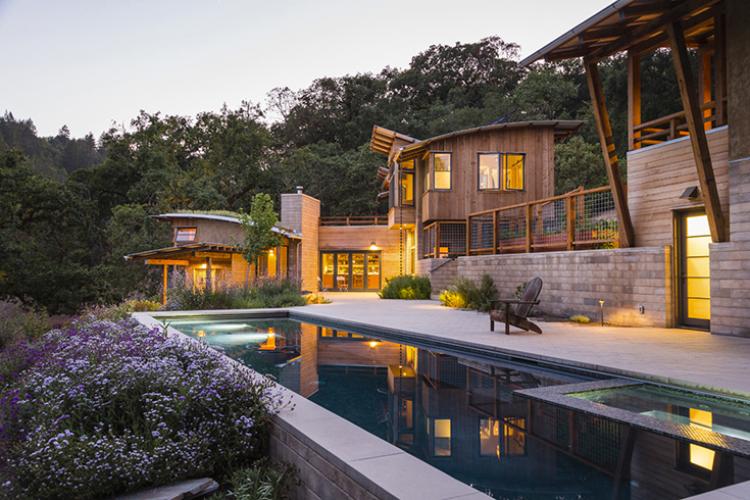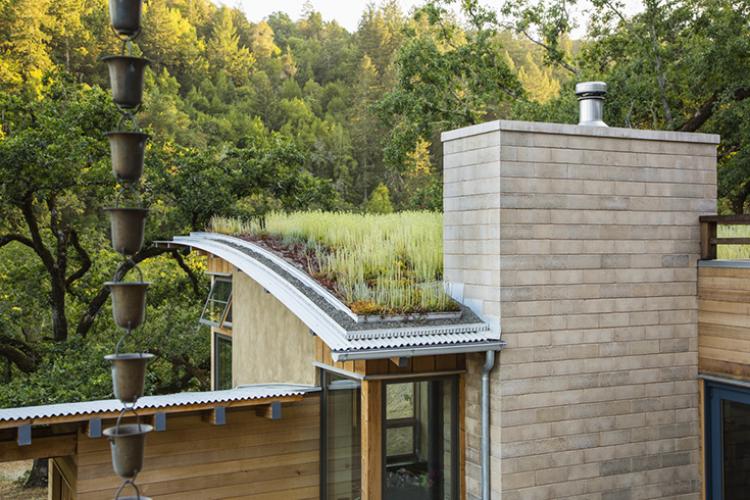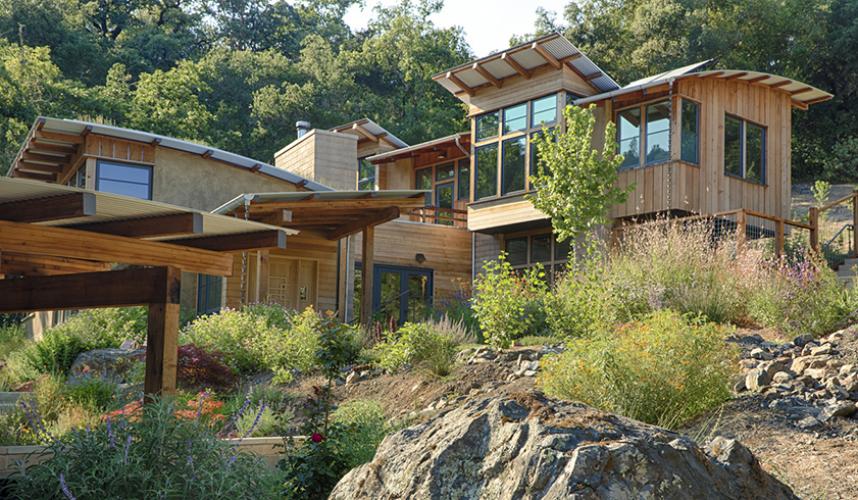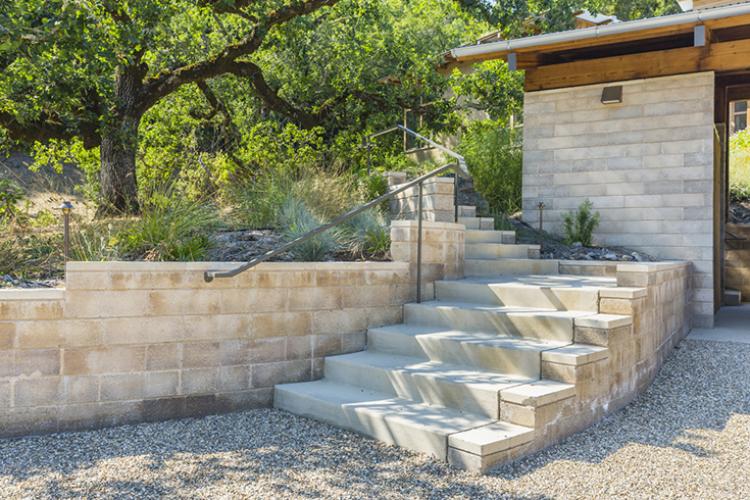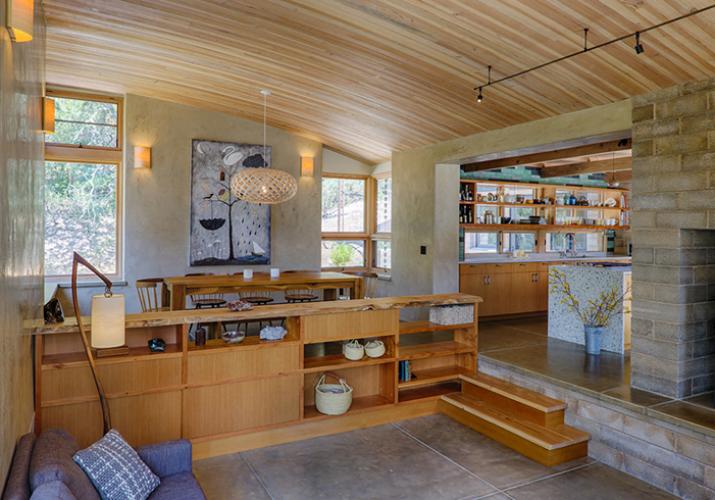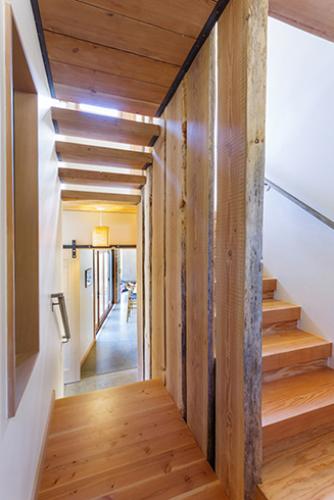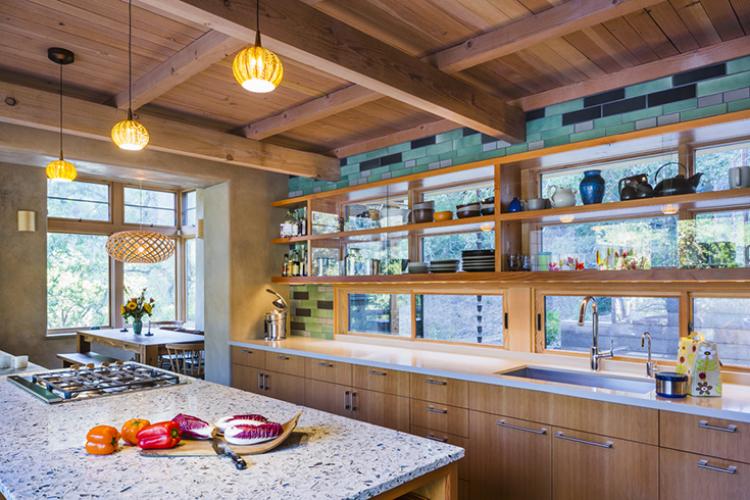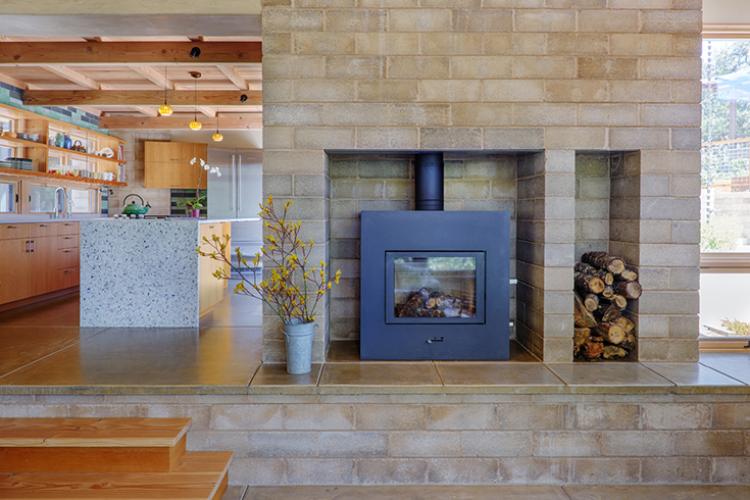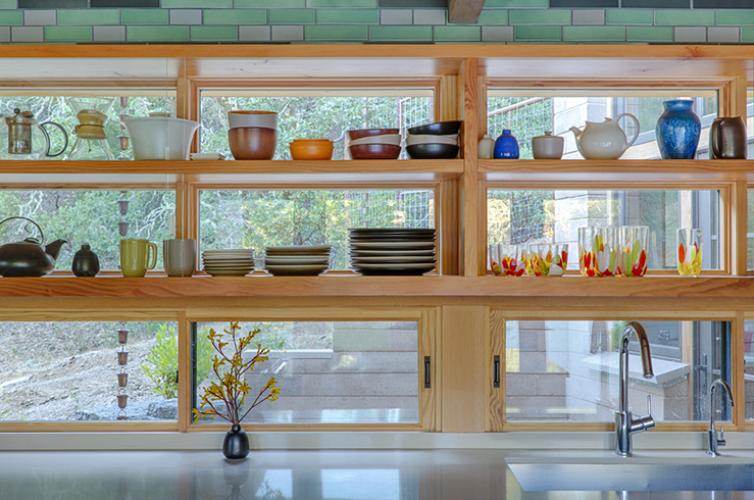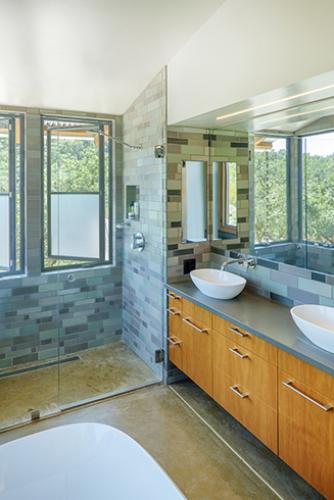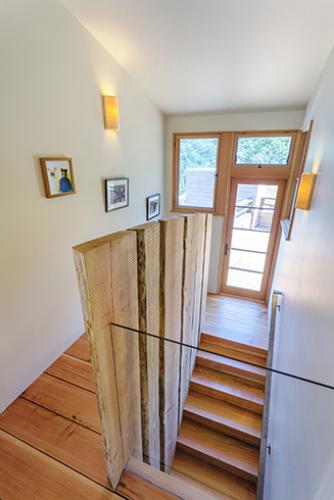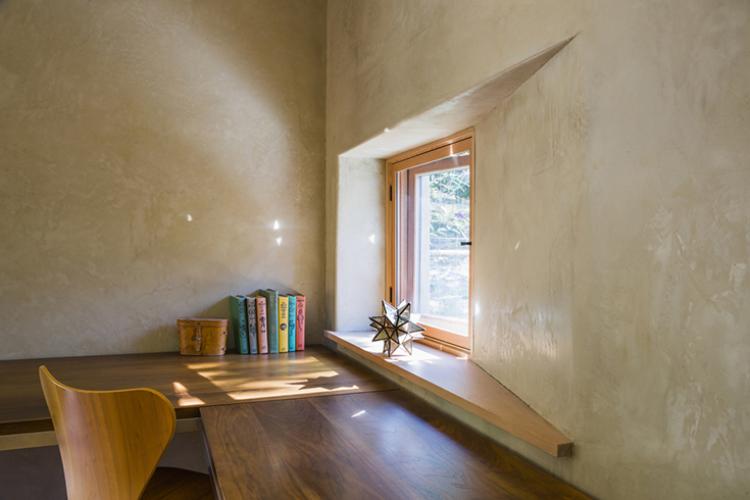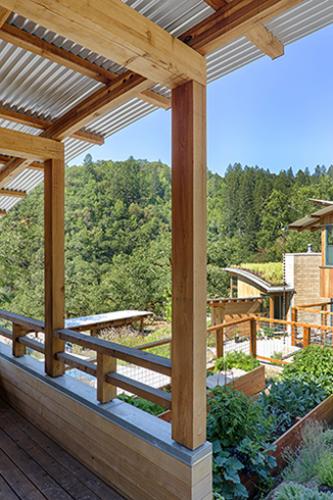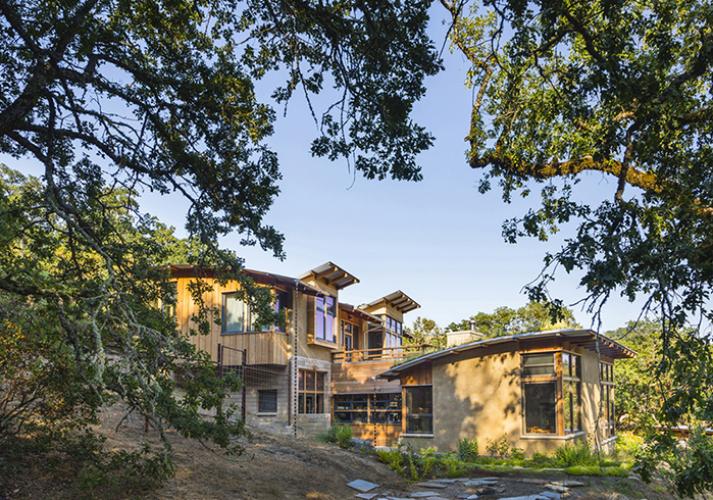Nestled in a beautiful 170-acre property along Porter Creek in rural Sonoma County, the design and construction of this off-the-grid homestead take great measures to ensure a harmonious fit with minimal impact on both the specific and global landscape, providing a sustainable frame for living and raising twin daughters. The indoor/outdoor flow creates an enriching yet peaceful living space for the family and their deep appreciation of the natural world.
While the property offered several possible building sites, solar analysis led to a south-sloping open hillside dubbed 'Big Sky'. Much of the property is shaded by the ridge south of the creek, but 'Big Sky' has ample access to sun throughout the year. The western edge is tucked in and shaded by mature oak trees, giving sun protection during summer afternoons. This site allowed us to route the driveway access further from the creek, eliminating a ranch road that had been channeling rainwater runoff into the creek.
The homestead is designed as a series of east-west running volumes, roughly paralleling the topography and stepping up the hill. Direct sunlight keeps the main living spaces warm during cooler months, while overhangs and exterior shade fins direct the summer sun away from windows during warmer months. The kitchen transparently links these bars, with doors that open wide to a narrow contoured terrace connecting the house with the pool. The “pool house” doubles as guest space; the upper level is an art and essential oil studio that faces the edible gardens.
Watershed Block earth masonry retaining walls limited the number of concrete deliveries at the remote location, and provide a warm, variegated texture. Upper walls are highly-insulating straw bale, coated inside and out with lime plaster for thermal mass. Much of the timber was milled on site or sustainably harvested by the neighbor, including live-edge slabs used as a rugged guardrail at the stairway to the bedrooms. The planted living room roof blends into the landscape while the other roofs, topped by gently curving corrugated metal, provide a softened take on typical agrarian structures and mimic the surrounding tree canopies. This residence exemplifies innovative sustainable design with its hybrid use of materials and site sensitive building.

